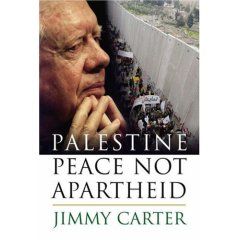
A Reuters interview with Syrian-based Hamas leader Khaled Meshaal has generated some excited headlines implying a softening of Hamas’ position regarding recognition of Israel. Needless to say, this was not the case.
Stating a “clear break with previous position”, the Times of London headline reads “Hamas leader accepts the ‘reality’ of Israel”, while the Independent says “Hamas softens Israel stance in calls for Palestinian state”.
Reason for optimism? Not if you follow the news. Only one hour after the full interview was published by Reuters, Hamas government spokesperson Ghazi Hamad told Ha’aretz that Meshaal said, “Israel exists – and that’s a fact.” However, Hamad maintained that “there was no change in our stance that Hamas does not recognize Israel.”
Salah Bardawil, head of Hamas’s parliamentary faction, told Ha’aretz that after checking with Meshaal, it seems to be that his words were twisted and distorted.
“He didn’t speak about any recognition of Israel, only a cease-fire with Israel,” Bardawil said.
The Jerusalem Post also quotes a senior Hamas official in Gaza City who says “acknowledging that Israel exists does not mean recognizing its right to occupy the land of Palestine, which belongs only to the Moslems.”
The bottom line – despite the Reuters interview and some resulting media reports, Hamas has not fulfilled the three basic criteria of the international community for lifting financial sanctions on the Palestinian government – recognition of Israel’s right to exist, forswearing terrorism, and accepting previous Israeli-Palestinian agreeements.
Why does the media rush to portray Hamas as “moderate” despite the organization’s own declarations to the contrary?
CARTER: ZERO CREDIBILITY
 At the beginning of December 2006, we drew attention to criticism of former US President Jimmy Carter’s book Palestine: Peace Not Apartheid. Since then, in the face of a huge amount of criticism, Carter has resorted to cheap accusations that Jews and the “Israel Lobby” have been responsible for the negative book reviews and for stifling debate, despite the fact that Carter himself has refused invitations to debate Alan Dershowitz. In addition, many of those book reviews were not written by members of established Jewish or Israeli organizations.
At the beginning of December 2006, we drew attention to criticism of former US President Jimmy Carter’s book Palestine: Peace Not Apartheid. Since then, in the face of a huge amount of criticism, Carter has resorted to cheap accusations that Jews and the “Israel Lobby” have been responsible for the negative book reviews and for stifling debate, despite the fact that Carter himself has refused invitations to debate Alan Dershowitz. In addition, many of those book reviews were not written by members of established Jewish or Israeli organizations.
Carter has variously been accused of fabrications, distortions of facts and historical revisionism. Professor Kenneth Stein of Emory University severed his 23-year association with the Carter Center in protest saying that the book:
“Is not based on unvarnished analyses; it is replete with factual errors, copied materials not cited, superficialities, glaring omissions, and simply invented segments.
Clinton administration Mideast envoy Dennis Ross writes in the NYTimes:
To my mind, Mr. Carter’s presentation badly misrepresents the Middle East proposals advanced by President Bill Clinton in 2000, and in so doing undermines, in a small but important way, efforts to bring peace to the region.”
The credibility of Carter’s book continues to fall. For a complete roundup of op-eds and articles on the book, see this detailed overview by our colleagues at CAMERA.
BBC BOWEN’S WORLD
A leaked e-mail has been acquired by Times of London columnist Stephen Pollard, written by BBC Middle East Editor Jeremy Bowen to BBC staff. Bowen’s slanted analysis and predictions for the year ahead in Israel and the Mideast graphically illustrates what’s wrong at the BBC.
According to Bowen:
“What is new in the last year, and will be one of the big stories in the coming twelve months, is the way that Palestinian society, which used to draw strength from resistance to the occupation, is now fragmenting.
The reason is the death of hope, caused by a cocktail of Israel’s military activities, land expropriation and settlement building – and the financial sanctions imposed on the Hamas led government which are destroying Palestinian institutions that were anyway flawed and fragile.”
In typical BBC fashion, Bowen places the blame for Palestinian infighting solely on Israel. Does Palestinian society not bear any responsibility for the situation that it finds itself in? Read the full e-mail at HonestReporting UK.

